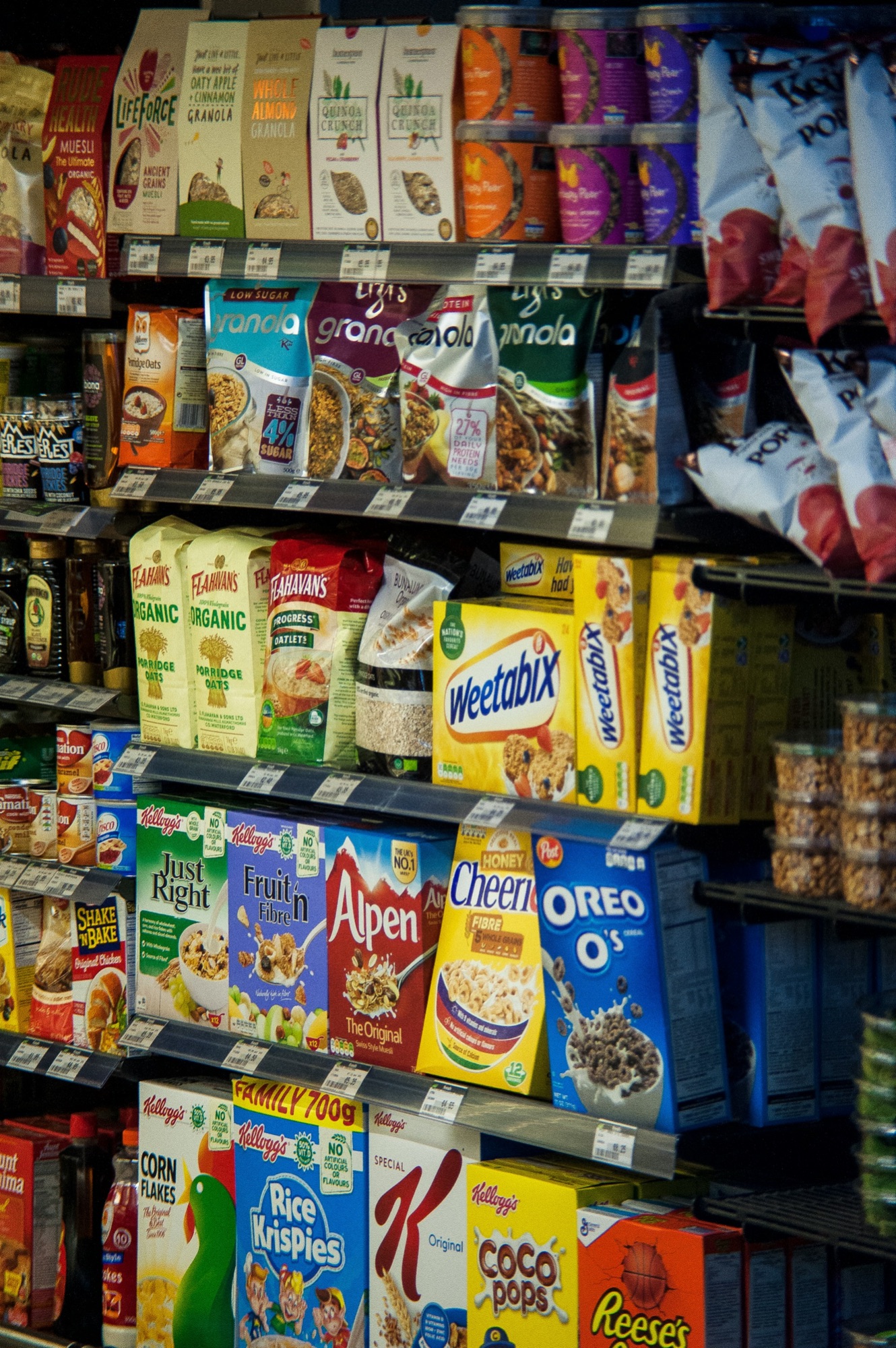Unveiling the Mystery: How to Avoid Ultra-Processed Foods

Do you ever feel overwhelmed by the sea of packaged foods promising health and convenience? But then that afternoon slump hits after consuming a quick and "easy" meal? Here's the truth: many of these options are ultra-processed, meaning they've lost most of their nutrients and gained unhealthy extras like sugar, salt, and bad fats. While tempting, these foods can wreak havoc on your health over time.
Our gut microbiome can be affected by ultra-processed foods due to:
Lack of Fibre: These foods are typically low in fibre, which is essential for feeding the good bacteria in your gut. Without enough fibre, these beneficial bacteria struggle to thrive.
Sugar Rush: The high sugar content in ultra-processed foods can lead to an overgrowth of bad bacteria that feed on sugar. This disrupts the balance in your gut microbiome, favouring the growth of harmful bacteria.
Unhealthy Fats: Unhealthy fats, like those often found in processed snacks and fried foods, can contribute to inflammation in the gut. This inflammation can damage the gut lining and hinder the good bacteria.
Additives: While research on the exact effects of these Ultra-processed additives is ongoing, some studies suggest they may disrupt the gut microbiome and potentially contribute to gut health issues.
Overall, a diet high in ultra-processed foods can create an environment in the gut that favours the growth of bad bacteria and puts the good bacteria at a disadvantage. This imbalance in the gut microbiome is linked to various health problems, including digestive issues, obesity, and even chronic diseases.

How To Recognise Ultra-Processed Foods
Recognising ultra-processed foods can be challenging because they often come in attractive packaging and may not immediately appear unhealthy. However, there are several key characteristics and strategies you can use to identify these types of foods:
Read the ingredient list: Ultra-processed foods often have long ingredient lists filled with unrecognizable names and chemical-sounding terms. These are usually additives, preservatives, and artificial flavours. If the list reads like a science experiment, put it back!
Check for high levels of sugar, fat, and salt: Ultra-processed foods tend to be loaded with added sugars, unhealthy fats, and excessive amounts of salt. Look at the nutrition label for high percentages of these ingredients.
Limited nutritional value: Ultra-processed foods are like empty calories – they offer little to no fibre, vitamins, or other essential nutrients. They might fill you up temporarily, but they won't nourish your body.
Highly palatable and addictive: These foods are designed to be hyper-palatable and can trigger overeating. They often contain combinations of sugar, fat, and salt that create a "bliss point" to keep you craving more.
Uniform appearance: Ultra-processed foods often have a uniform appearance, with consistent size, shape, and colour, as they are mass-produced in factories.
Marketing and packaging: Beware of flashy packaging and claims like "low-fat," "low-carb," "gluten-free," or "all-natural." These are often used to create a misleading "health halo" effect.
Shelf life: Thanks to preservatives and stabilizers, these foods can sit on shelves for ages. This might be convenient, but it's a sign they're not packed with fresh, wholesome ingredients.
Minimal preparation required: Ultra-processed foods are typically ready-to-eat or require minimal cooking, often just heating in a microwave.
Examples of Ultra-Processed Foods:
- Sugary cereals
- snacks like crisps, biscuits and cereal bars.
- Soft drinks
- Ham and sausages
- Flavoured yoghurt
- Ice-Cream
- Mass-produced bread
Not all processed foods are bad!

Remember that not all processed foods are bad, as some minimally processed foods like canned vegetables, frozen fruits, or whole-grain sourdough bread can be nutritious and convenient.
The key is to focus on consuming whole and minimally processed foods as the foundation of your diet while limiting your intake of ultra-processed items. Think fruits, vegetables, whole grains, lean proteins, and healthy fats.
When we consume minimally processed foods we notice:
- More energy,
- Weight control is easier,
- Feel calmer,
- Better skin,
- Improved mood
- Enhanced gut health
- Less chance of ill health.
By following these tips, you can confidently navigate the grocery store aisles and make healthy choices that nourish your body and taste buds.
A quote to remember. “If it would not be found in your grandma’s store cupboard it should not be in the ingredients list’!
Start shopping for gut-friendly ingredients with my handy printable gut-friendly store cupboard essentials. Download here.
If you want further support on living a gut-friendly lifestyle, join the next online Course.Sign up to the waitlist here
Comments